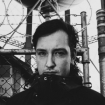A founding member of Throbbing Gristle and Psychic TV, industrial-music pioneer, poet, performance artist and occultist Genesis P-Orridge has died. S/he was 70 years old. P-Orridge's manager Ryan Martin confirmed the news to Rolling Stone.
The trailblazing and confrontational artist, who identified as a third gender, passed away early Saturday, March 14th, following a two-year battle with leukemia, he/r daughters said in a statement. P-Orridge revealed a chronic myelomonocytic leukemia diagnosis in October 2017.
"It is with very heavy hearts that we announce thee passing of our beloved father, Genesis Breyer P-Orridge," Caresse and Genesse P-Orridge wrote. "S/he will be laid to rest h/er other half, Jaqueline 'Lady Jaye' Breyer who left us in 2017, where they will be re-united." P-Orridge married Lady Jaye, a.k.a. Jacqueline Mary Breyer, in the mid-Nineties, and together they embarked on the Pandrogeny Project, an attempt to unite as a "pandrogyne," or single entity, through surgery and other body modification that made them physically resemble each other. Lady Jaye died in 2007 due to a heart condition.
Dais Records, which released and reissued P-Orridge's music in recent years, also paid tribute following he/r death. "Rest in peace Genesis," the record label tweeted. "For Dais, you really were the start of it all. Friend, inspiration, and legend. Love you forever."
As a pioneer of industrial music, P-Orridge influenced generations of outsider artists, including Nine Inch Nails, Rammstein, Ministry, KMFDM, Skinny Puppy, Godflesh, Cold Cave, Youth Code and many more. For P-Orridge, industrial music was the inevitable next step in punk rock. "The punk rockers said, 'Learn three chords and form a band,'" s/he told the New Yorker in 2012. "And we thought, Why learn any chords? We wanted to make music like Ford made cars on the industrial belt. Industrial music for industrial people."








